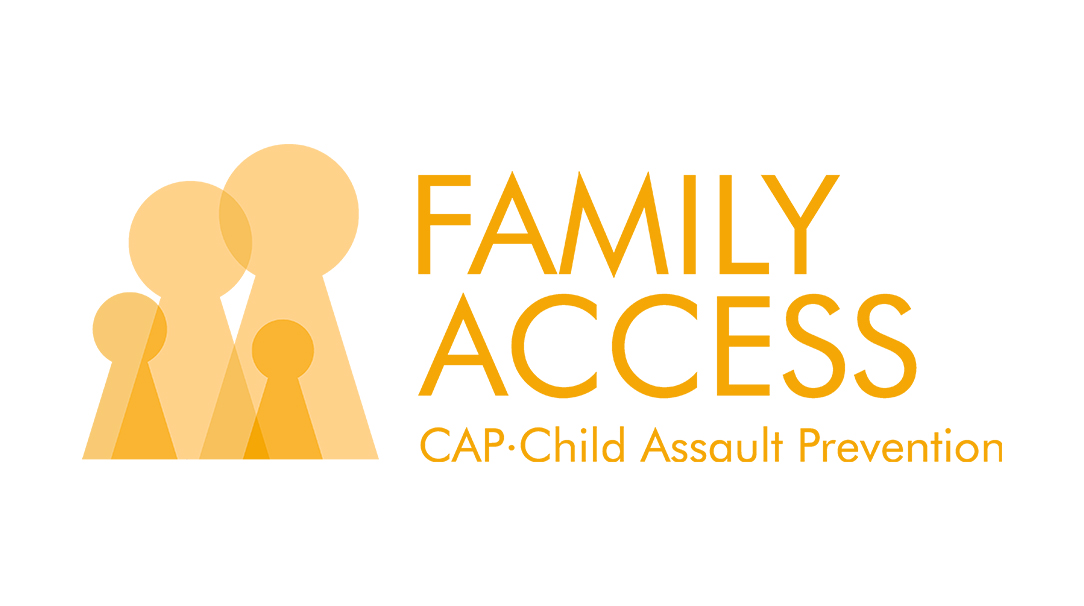Family ACCESS CAP Program Pivots to Zoom
Since this article was first published in March 2022, we have pivoted again, and our CAP program has returned to doing programs in person. We are no longer offering the CAP program remotely.
Family ACCESS CAP Program Pivots to Zoom
The Fifth Grader, face hidden behind a rainbow-dotted cloth mask, approached the computer camera that was connecting three CAP presenters to two Newton classrooms over Zoom. Even from across town, Family ACCESS’s CAP director and presenter Kim Freedman clearly heard the important question and witnessed the problem-solving underlying it.
“When is it safe to talk to a Stranger?”
What Is the Family ACCESS CAP Program?
The Child Assault Prevention Program (CAP) at Family ACCESS teaches children the importance of assertiveness, peer support, and turning to trusted adults for assistance. Before the pandemic, CAP reached 3100 elementary students in three communities. During the 2020 school year, when so many classrooms were conducted virtually, CAP developed innovative online resources for parents and teachers.
The CAP Program in 2022
For this year, CAP – an empowerment program for elementary-aged students – has pivoted from in-person to Zoom-based interactive discussions. Our team of trained volunteers added a new skill to their repertoire in mastering Zoom hosting and screen sharing, along with acumen in addressing advanced topics in social-emotional learning. One teacher noted, “It was great how you moved seamlessly from video to PowerPoint and your speakers.” While this temporary accommodation has presented its challenges – wonky Wi-Fi connections and higher than usual volunteer attrition- it will enable CAP to reach over 2,000 students in 110 classrooms this year.
Prioritizing Child Safety
Why did the student want to know about talking to strangers? Because children are curious by nature and safety rules – even “Don’t Talk to Strangers” – aren’t always black and white. Kim went on to consider with this student and her assembled classmates how might this situation be safe. Were trusted adults close by to help? Was the stranger “socially distanced” so you could run away if you needed to? Kim pointed out, “Even adults keep this in mind when we chat with people we don’t know.”
CAP’s program addresses bullying, stranger safety, and sexual assault by a known person. We teach strategies any child can take to stand up for themselves—say “No or Stop” to someone hurting them, and turning to a trusted adult to get help. And students learn best when they can explore the nuances of what is safe versus unsafe with us. These discussions build children’s self-esteem and confidence in their ability to handle these problems. CAP is presented once every year to three grades in Newton and Brookline elementary schools.
Powered by Responsible, Vetted Volunteers
“It is an honor and feels incredibly rewarding and important to be part of the CAP program doing something to help children be empowered to stand up for themselves and be in control. The result of all the work that went into converting the program from in-person to a zoom format is really remarkable. Working with Kim and the devoted team of volunteers has been such a fulfilling – and fun – experience.” – Susan, CAP Program Volunteer
A dedicated group of community volunteers are at the heart of the CAP program. “I have been a volunteer with the CAP Program for over 10 years. I continue doing this work because it is so critical to help children learn strategies about how to keep themselves safe and to know that they can have agency in their lives. I also stay involved with CAP because the program is so well run and the other volunteers are awesome to work with. It is always a thrill to be in the classroom!” – Ellen, CAP Program Volunteer. Next year the CAP program expects to be back in person in Newton and Brookline classrooms. Volunteers will visit local classrooms 2-3 times a month in a team of three to present guided discussions and engaging role plays for children. Trainings will begin in May 2022.
If you’re interested in learning more about volunteering, please visit: www.familyaccess.org/volunteer.
Where can families find additional resources?
- For more information on CAP and additional resources for parents and children, visit www.familyaccess.org/cap/.
- To support a child in crisis, see CAP’s Local Support Resources Guide.


